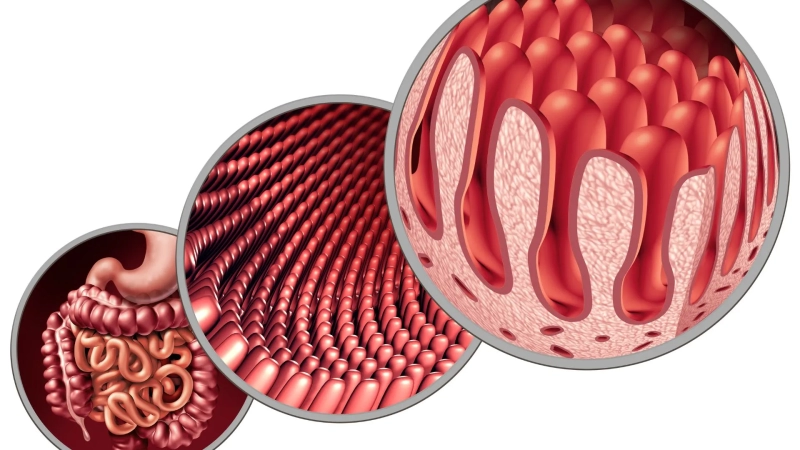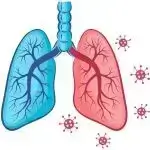Leaky Gut Syndrome, Candida

Leaky Gut Syndrome and Candida – A Naturopathic Perspective
At the Naturopath Osteopath Clinic, we specialize in addressing the root causes of chronic digestive issues, including Leaky Gut Syndrome and Candida overgrowth. Our Naturopathic Doctors combine advanced diagnostic tools with natural therapies to restore gut integrity and support optimal microbiome health.
What Is Leaky Gut Syndrome?
Leaky Gut Syndrome, or intestinal permeability, occurs when the tight junctions in the intestinal lining become compromised. This allows undigested food particles, toxins, and microbes to leak into the bloodstream, triggering inflammation and immune responses.
Common Symptoms of Leaky Gut:
- Food sensitivities or intolerances
- Chronic fatigue
- Bloating, gas, or abdominal discomfort
- Brain fog or difficulty concentrating
- Joint pain or skin issues like eczema
- Autoimmune symptoms or flares
Understanding Candida Overgrowth
Candida is a naturally occurring yeast in the gut microbiome. However, when the immune system is weakened or the microbiome becomes imbalanced—often due to antibiotic use, poor diet, or chronic stress—Candida can grow excessively, contributing to fungal infections and gut dysfunction.
Signs of Candida Overgrowth May Include:
- White coating on the tongue (oral thrush)
- Frequent yeast infections
- Intense sugar cravings
- Digestive disturbances (constipation, bloating)
- Skin and nail fungal infections
- Mood swings, irritability, or anxiety
Our Naturopathic Treatment Approach
- Comprehensive lab testing for intestinal permeability, Candida markers, food sensitivities, and gut flora balance
- Targeted nutrition therapy – anti-inflammatory, low-sugar diets designed to repair the gut lining and starve Candida
- Supplemental support – probiotics, L-glutamine, zinc, and natural antifungal agents like caprylic acid or oregano oil
- Lifestyle and stress management strategies to support long-term gut healing and immune regulation
Why Choose Our Clinic?
At the Naturopath Osteopath Clinic, we understand the intricate connection between gut health and systemic well-being. Our personalized, integrative care empowers you to take control of your health using natural, evidence-based solutions.
If you’re struggling with chronic digestive symptoms, Candida overgrowth, or suspect you may have a leaky gut, contact us today for a comprehensive evaluation and customized healing plan.

Diseases and Disorders Linked to Leaky Gut Syndrome
Leaky Gut Syndrome, also known as increased intestinal permeability, can be a contributing factor to various systemic health conditions. At the Naturopath Osteopath Clinic, our Naturopathic Doctors work to identify the root causes of chronic illness, including the role that gut dysfunction may play in triggering or exacerbating certain diseases.
Conditions Commonly Associated with Leaky Gut:
- Autoimmune Disorders – such as Hashimoto’s thyroiditis, rheumatoid arthritis, lupus, and celiac disease, where a compromised gut lining may trigger immune system dysregulation.
- Chronic Inflammatory Conditions – including Crohn’s disease, ulcerative colitis, and inflammatory bowel disease (IBD), which are linked to ongoing gut inflammation.
- Neurological Disorders – such as brain fog, depression, anxiety, ADHD, and migraines may be connected to the gut-brain axis and leaky gut-related neuroinflammation.
- Skin Conditions – like acne, eczema, psoriasis, and rosacea, which may flare up in response to systemic inflammation and gut imbalance.
- Metabolic and Endocrine Disorders – such as Type 2 diabetes, PCOS, and obesity, where inflammation and insulin resistance can be aggravated by gut permeability.
- Food Sensitivities and Allergies – caused by the immune system reacting to food particles entering the bloodstream due to a leaky gut.
- Chronic Fatigue Syndrome and Fibromyalgia – both conditions may involve immune dysfunction and inflammation related to gut barrier damage.
Our Naturopathic Perspective
We believe the health of the digestive tract is foundational to the health of the entire body. By identifying and treating leaky gut early—through dietary changes, natural supplements, and lifestyle support—we help patients manage or even reverse associated disorders.
To learn more or book a consultation, contact us and begin your journey to optimal health today.

Food Intolerances and Sensitivities Linked to Leaky Gut Syndrome
At the Naturopath Osteopath Clinic, we recognize that leaky gut syndrome—also known as increased intestinal permeability—can play a critical role in the development of food intolerances and sensitivities. When the gut lining becomes compromised, undigested food particles, toxins, and microbes can pass through into the bloodstream, triggering immune responses and systemic inflammation.How Leaky Gut Contributes to Food Sensitivities
- Immune System Overactivation: The gut is home to a large portion of the immune system. When foreign particles escape through a weakened gut barrier, the immune system may mistakenly identify them as threats, leading to chronic food sensitivities.
- Inflammatory Response: Repeated exposure to trigger foods can promote inflammation throughout the body, worsening existing conditions like eczema, migraines, IBS, and joint pain.
- Cross-Reactivity: Over time, the immune system may begin to react to a growing number of foods due to molecular similarities, creating a broader intolerance profile.
Common Food Sensitivities Associated with Leaky Gut
- Gluten
- Dairy (lactose and casein)
- Eggs
- Soy
- Corn
- Shellfish
- Nightshade vegetables (e.g., tomatoes, peppers)
Our Naturopathic Approach
We utilize advanced testing such as IgG food sensitivity panels to identify your personal triggers. Once identified, we create a custom treatment plan that may include:- Targeted elimination diets
- Gut-healing supplements like L-glutamine, probiotics, and digestive enzymes
- Anti-inflammatory nutrition guidance
- Lifestyle and stress-reduction techniques
Autoimmune Diseases and Leaky Gut Syndrome
At the Naturopath Osteopath Clinic, we recognize a growing body of research that connects autoimmune diseases with leaky gut syndrome—a condition where the lining of the intestinal wall becomes permeable, allowing foreign substances to enter the bloodstream and disrupt immune function.
The Gut-Immune Connection
The gut plays a central role in regulating immune responses. When its barrier is compromised, toxins, bacteria, and undigested food particles can leak into the bloodstream, triggering immune system reactions. This chronic immune activation can lead the body to mistakenly attack its own tissues—a hallmark of autoimmune diseases.
Common Autoimmune Diseases Linked to Leaky Gut
- Hashimoto’s thyroiditis
- Rheumatoid arthritis (RA)
- Systemic lupus erythematosus (SLE)
- Celiac disease
- Multiple sclerosis (MS)
- Psoriasis
- Type 1 diabetes
Our Naturopathic Approach to Autoimmune Conditions
We use a functional, evidence-based naturopathic model that emphasizes gut health as a foundation for immune regulation. Our personalized care plans may include:
- Comprehensive lab testing (including food sensitivities, microbiome health, and inflammation markers)
- Anti-inflammatory diets (e.g., AIP, gluten-free, dairy-free protocols)
- Gut healing supplements such as L-glutamine, zinc, omega-3s, and herbal antimicrobials
- Stress reduction techniques to lower cortisol levels and immune stress
- Lifestyle coaching focused on sleep, movement, and detoxification
Our goal is to calm the immune system, heal the gut lining, and reduce autoimmune flare-ups by addressing root causes—not just symptoms.
If you’ve been diagnosed with an autoimmune condition and suspect digestive issues may be involved, we encourage you to schedule a consultation to explore a holistic, integrative path toward healing and long-term wellness.
Candida Overgrowth
Candida is a naturally occurring yeast found in small amounts in the mouth, gut, and on the skin. However, when the balance of bacteria and yeast in the body is disrupted—often due to antibiotics, a high-sugar diet, or chronic stress—Candida can multiply excessively, leading to a condition known as Candida overgrowth or candidiasis.
Common Symptoms of Candida Overgrowth
- Chronic fatigue and brain fog
- Recurring vaginal or urinary tract infections
- Digestive issues like bloating, gas, and constipation
- Skin problems such as eczema, rashes, or fungal infections
- Persistent sugar cravings
- Oral thrush (white coating on the tongue)
- Mood disturbances such as irritability or anxiety
Naturopathic Approach to Candida
At the Naturopath Osteopath Clinic, our Naturopathic Doctors utilize functional medicine principles to identify and treat Candida overgrowth by:
- Running lab tests such as Comprehensive Stool Analysis, Candida Antibodies, and Organic Acids Test (OAT)
- Implementing targeted anti-Candida diets (low sugar, low refined carbs, yeast-free)
- Using antifungal herbs and supplements like caprylic acid, oregano oil, garlic, and probiotics
- Supporting gut healing through L-glutamine, zinc, and digestive enzymes
- Strengthening the immune system and improving liver detoxification pathways
Holistic Restoration and Long-Term Relief
Candida overgrowth is often a sign of deeper imbalances. Our holistic treatment plans aim not only to reduce yeast levels but also to restore the body’s natural microbiome, enhance digestion, and support overall health.
If you’re experiencing persistent symptoms and suspect Candida may be the cause, we invite you to book a consultation with our team. Let’s work together to identify the root cause and guide you back to balance and wellness.
Naturopath Osteopath Clinic Services

Women’s Health and Wellness
Naturopathic doctors often specialize in women’s health and wellness, providing personalized, integrative care that supports women through every stage of life. From adolescence and fertility to pregnancy, menopause, and healthy aging, naturopathic care focuses on prevention, hormonal balance, and whole-body wellness—empowering women to take an active role in their long-term health.

Men’s Health and Wellness
Men’s health and wellness are essential not only for individual vitality but also for the strength of families and the resilience of entire communities. Prioritizing men’s physical, mental, and emotional well-being leads to healthier relationships, improved quality of life, and increased productivity—ultimately contributing to a more balanced and thriving society. Comprehensive care for men supports long-term health, disease prevention, and overall fulfillment at every stage of life.

Mental Health
A holistic approach can be especially beneficial for individuals facing mental health challenges, as it aims to identify and address the underlying causes of symptoms—not just manage them. By considering the physical, emotional, and lifestyle factors that contribute to well-being, holistic care supports more comprehensive and lasting mental health outcomes.

Integumentary System, Skin Conditions
Naturopathic doctors often specialize in the integumentary system, which includes the skin, hair, and nails. Through a holistic and individualized approach, they can effectively address a range of skin conditions such as acne, eczema, psoriasis, and other inflammatory or chronic dermatological concerns. By identifying the root causes—whether hormonal, digestive, or immune-related—naturopathic care supports long-term skin health from the inside out.

Endocrine Conditions
Naturopathic doctors commonly support patients with endocrine-related conditions such as diabetes, thyroid dysfunction, and adrenal fatigue. By addressing hormonal imbalances through lifestyle changes, nutritional support, and targeted natural therapies, naturopathic care aims to restore optimal endocrine function and improve overall well-being.

Cardiovascular Conditions
Naturopathic doctors provide holistic, patient-centered care and can support individuals with a wide range of cardiovascular conditions. By focusing on lifestyle, nutrition, stress management, and natural therapies, they work to address underlying risk factors and promote long-term heart health.

Autoimmune disorders, Immune System Condition
An immune system condition refers to any disorder that affects the body’s ability to defend itself against illness and disease. This includes a wide range of issues such as chronic infections, autoimmune diseases, and allergic reactions—each involving an imbalance or dysfunction in immune system response.

Rheumatologic and Musculoskeletal Conditions
Rheumatologic and musculoskeletal conditions refer to disorders that affect the joints, muscles, bones, and connective tissues, often resulting in pain, inflammation, stiffness, and restricted mobility. These conditions can significantly impact daily function and quality of life if not properly managed.

Respiratory System Conditions
A Naturopathic Doctor (ND) takes a holistic approach to care, focusing on treating the whole person rather than just the symptoms of an illness. Rooted in the belief that the body has an innate ability to heal itself, naturopathic medicine emphasizes identifying and addressing the underlying causes of disease while supporting the body’s natural healing processes.

Gastrointestinal Conditions
A naturopathic doctor specializing in gastrointestinal conditions typically utilizes a range of natural therapies to support and restore digestive health. This may include nutritional counseling, herbal medicine, probiotics, lifestyle modifications, and stress management techniques—each tailored to address the root causes of digestive imbalance and promote optimal gut function.

Neurology and Pain Management
Naturopathic doctors are trained in a wide range of natural therapies that can support the treatment of neurological conditions. These therapies may include botanical medicine, homeopathy, acupuncture, nutritional support, and lifestyle interventions—each aimed at improving nervous system function, reducing inflammation, and enhancing overall neurological well-being.
If you liked this content and found it to be informative, please rate it.
We are sorry that this post was not useful for you!
Let us improve this post!
Tell us how we can improve this post?
